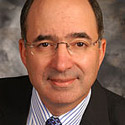05:40 PM
Wealth Management: Can a Leopard Change Its Spots?
Charles Schwab is in the news again. This time, the news isn't good. Pottruck is out, Charles is back. Wealth management is out, and self-service is back. What went wrong? Was it a failed strategy? A failed implementation? Or both?
Wealth management is daunting. It is not just a task; it is a process. It is the process of listening to clients' long-term needs, providing conflict-free advice, offering a set of products aligned to the advice, monitoring these products to ensure performance, readjusting the balance as needed and developing a pricing mechanism that not only provides value for the firm and adviser, but is not too onerous for the investor.
So what went wrong? Schwab had the brand - it was arguably the best and largest online broker. The economy was coming off a tremendous run, investors' pockets were full and, as we started into a three-year decline, people needed advice. The rising tide of a U.S. stock market was no longer going to bail them out. By 2001, the investor needed someone to say, "Get rid of that toxic waste and transition to a set of safer products." But how do you transition your brand? How do you migrate from a do-it-yourself shop to a full-service powerhouse?
To provide that engine, Schwab bought U.S. Trust. This much-maligned acquisition in some ways was smart, but in others was the beginning of the downfall. Instead of being the cherry on the dessert, it was the sundae at the heart of a family squabble.
Not only did U.S. Trust not deliver wealth management capabilities into the traditional branch, online and call-center channels, but it acted as a wedge, upsetting ultra-high-net-worth clients, independent advisers and traditional groups within Schwab.
U.S. Trust clients were unsatisfied, as their white-shoed, blue-blooded wealth management service was all of a sudden taken over by that, that, that ... that firm that caters to self-directed investors (egad!). Advisers were upset, thinking that Schwab would up-sell their best clients to U.S. Trust, and traditional branch personnel were upset because they didn't believe they were in the advice business or that they were equipped to offer it.
Clients were confused. Was Schwab a low-cost self-service platform? Was it unbiased (especially since it bought Soundview, an investment bank)? Did it offer advice, or was it just another full-service broker?
Well, Schwab has retrenched. The investment bank is gone (sold to UBS), U.S. Trust is rumored to be for sale and the firm has cut its fees to be more competitive. Am I satisfied? Well, two out of three ain't bad.
With all this change, Schwab's leaders have unfortunately ignored the key questions that started this: How does the Schwab client obtain advice? Will cutting fees help? Probably not. While this may win back active investors, to the majority of Schwab clients, who trade less than 10 times a year, the fee cut is immaterial. Service will be the differentiator.
Schwab needs to go back to square one to provide advice, and advice starts with training. It needs to ensure that there are well-trained advisers where they can talk to clients - at the branch. It needs to create tools that help advisers understand client needs. It needs to build a set of portfolio management services that help investors and advisers understand products and returns, and develop a pricing mechanism that benefits not only Schwab, but advisers and clients as well.
The lesson from this story is that brand is important - go with it, not against it. Corporate culture is hard to change, especially one so deeply rooted in a business model. And, as you extend your brand into new areas, do it slowly, with caution, and insure that all of the stake holders are fully vested.
Larry Tabb is founder and CEO of Westborough, Mass.-based The Tabb Group, a financial-markets strategic-advisory firm. [email protected]
Larry Tabb is the founder and CEO of TABB Group, the financial markets' research and strategic advisory firm focused exclusively on capital markets. Founded in 2003 and based on the interview-based research methodology of "first-person knowledge" he developed, TABB Group ... View Full Bio





















